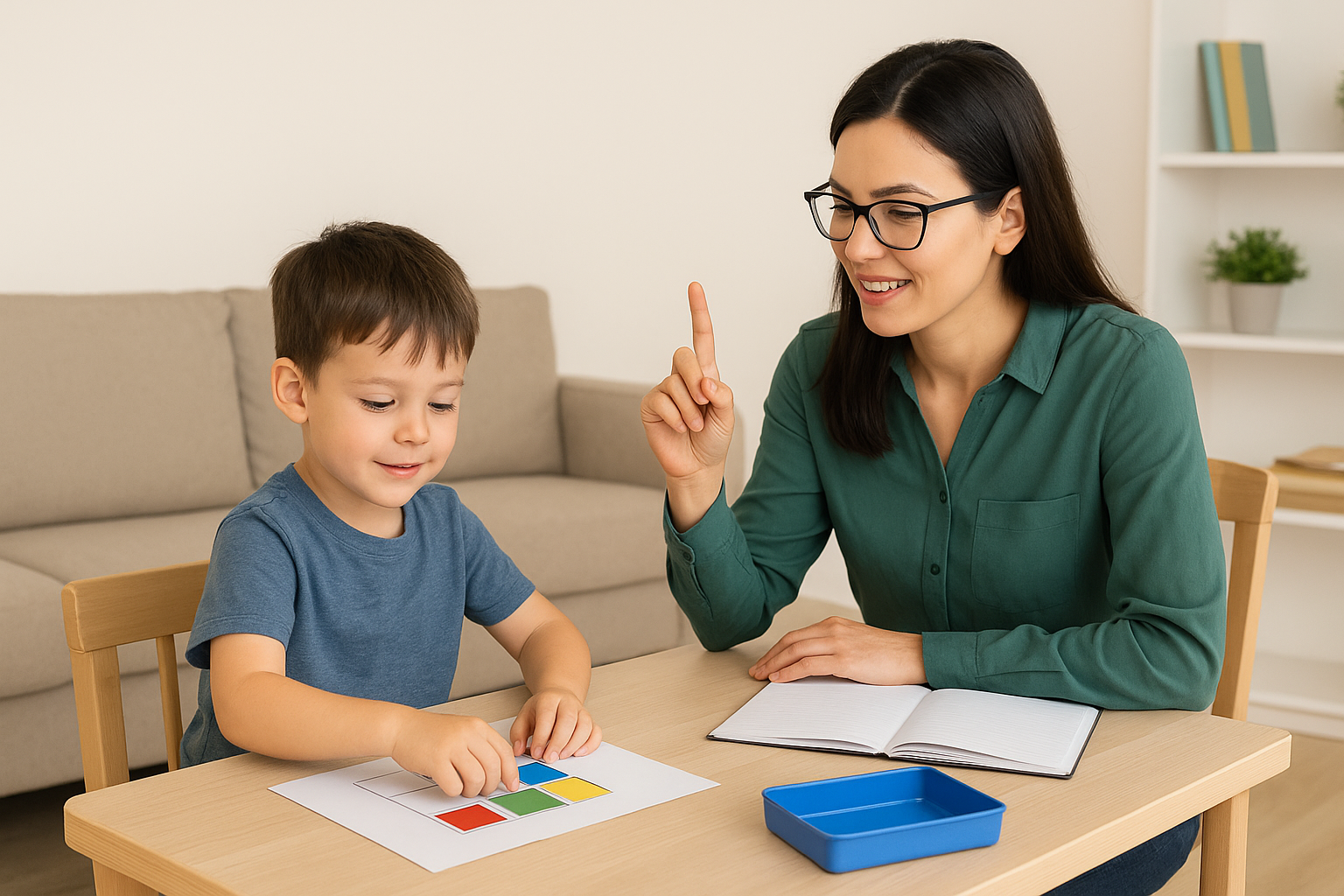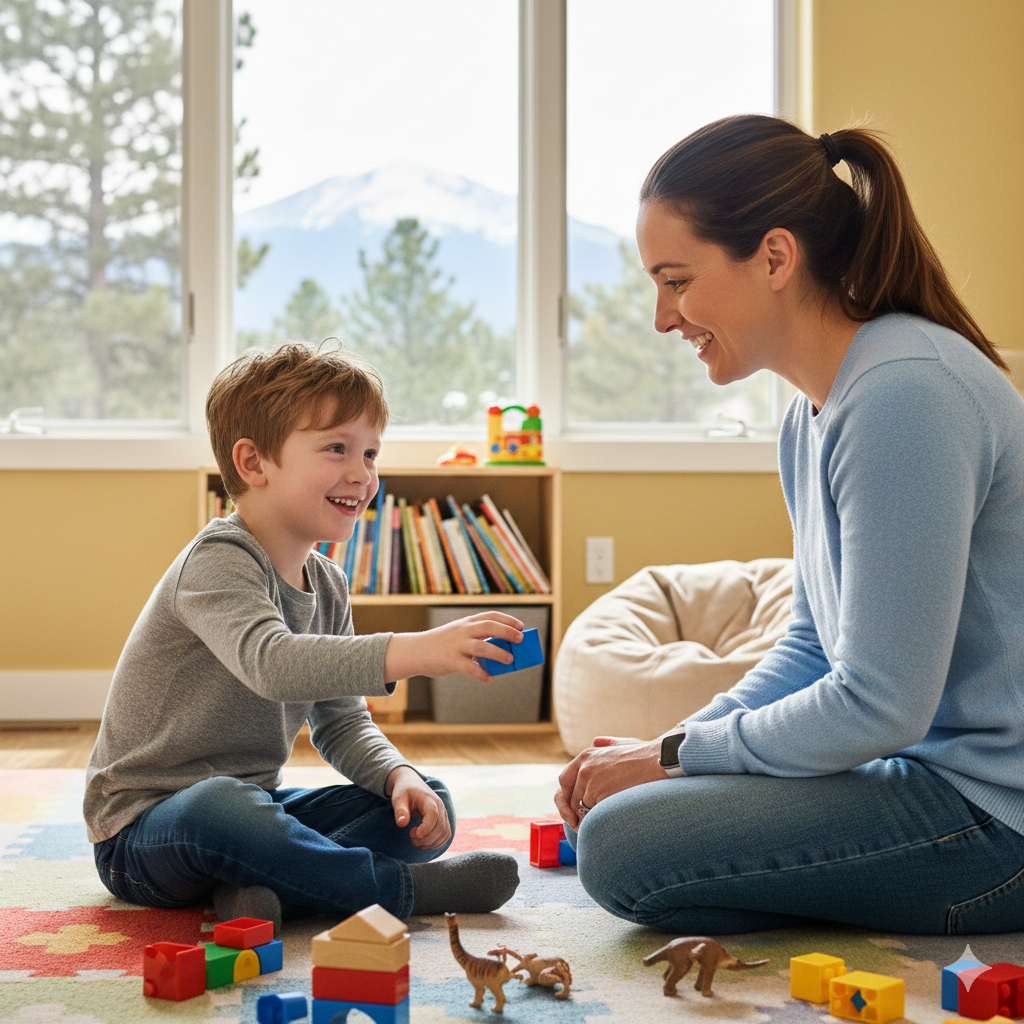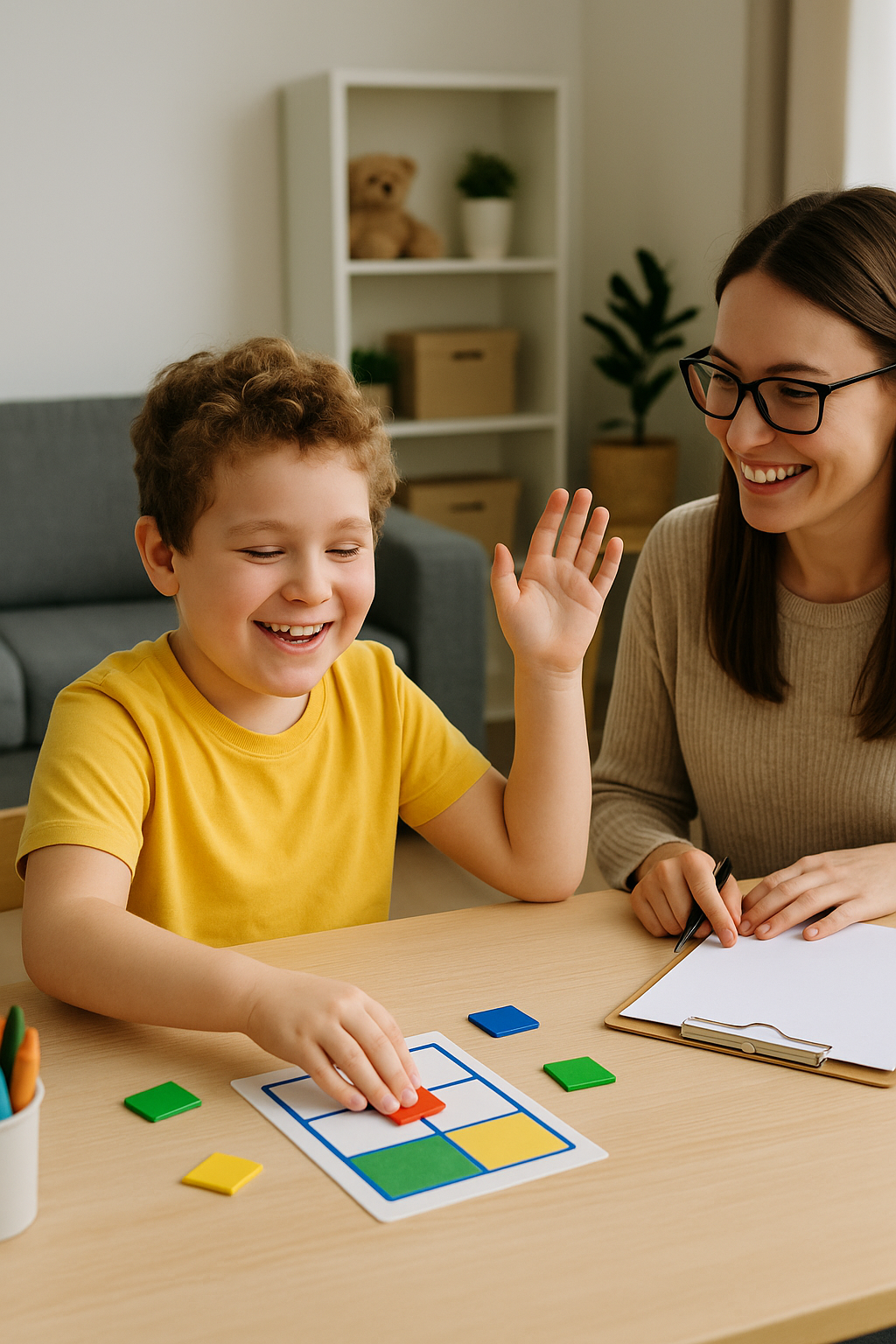ABA Interventions for Physical Aggression – Calmer Homes, Safer Kids
When aggression shows up at home, it can feel overwhelming — hitting, biting, or throwing aren’t just behaviors, they’re barriers to peace and safety. At Achieving Stars, our in-home ABA therapy helps your child learn safer ways to cope, while helping your family regain calm and confidence.


Why Parents Search for Help With Aggression
Parents looking for “ABA therapy for aggression” often share the same worries:
- “My child lashes out when frustrated — I don’t know what to do.”
- “We can’t go out as a family without a meltdown turning physical.”
- “It’s starting to affect school and relationships with siblings.”
Aggression isn’t a reflection of who your child is — it’s a sign they don’t yet have the tools to express their needs safely. That’s where we step in.
Our ABA Approach to Reducing Aggression
Our therapists use proven, ethical ABA strategies tailored to your child:
- Functional Behavior Assessment (FBA): Identifying the why behind the aggression — whether it’s communication struggles, sensory overload, or escape from demands.
- Replacement Skills: Teaching safer, functional ways to express frustration (e.g., asking for a break, using words or visuals).
- Reinforcement of Positive Behaviors: Building consistency so your child learns calm gets results faster than aggression.
- Parent Collaboration: We work alongside you to manage situations at home, so progress doesn’t stop when the session ends.
➡️ Every plan is individualized. No cookie-cutter programs, only goals specific to your child and family


Our Expertise Makes the Difference
- In-Home Advantage: You can watch sessions, ask questions, and immediately apply strategies in real life.
- Compassionate, Experienced Team: Our therapists are trained to de-escalate safely while teaching long-term coping skills.
- Family-Centered Approach: We support siblings, caregivers, and teachers in creating a consistent environment for success.
- Ethical Practice: Our goal is never to suppress your child’s personality — only to help them feel safe, understood, and capable.
Parent Results
“My son’s aggression at school was constant. After 3 months with Achieving Stars, he now asks for a break instead of hitting. Our home feels calmer.” – Parent in New Jersey
“We used to avoid family gatherings because of aggression. Now my daughter can handle transitions without lashing out.” – Parent in Colorado

